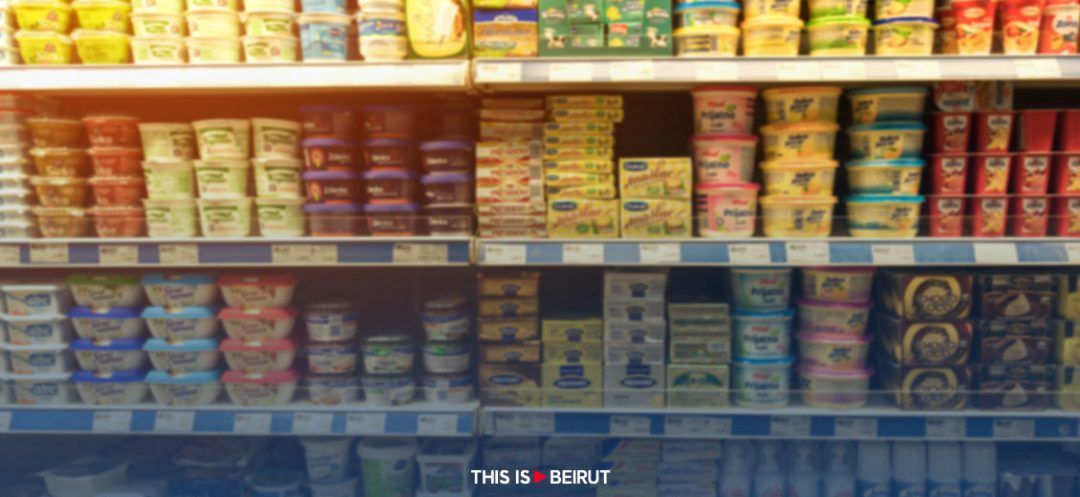
If you are accustomed to supermarket visits, you've likely observed a shift in the variety of products available in recent years. Shelves are now brimming with numerous brands that were nonexistent until recently. This is because importers and retailers have frequently had to turn to new supply sources to adapt to our new situation of poverty. As a result, the flagship brands have somewhat lost their glory, facing competition from what some perceive as generics.
Everything is crystal clear. However, what remains less clear and leaves us wondering is how the so-called Lebanese brands, whether new or old, operate. Let's explore a selection of Lebanese food brands (as labeled by supermarkets): Al-Wadi Al-Akhdar from the Obegi group; Plein Soleil, owned by the Halwani group; Carry, an exclusive label at Le Charcutier; and others like Siblou, Lamesa, Deroni, Captain Fisher, Bihar, Monarch, La Piara, Taj, Frumer, Domo, Dolsi, Barista, among many more.
Brands that offer a wide array of quality products are certainly cause for celebration. However, upon examining the backside of the can, one discovers that for many of these brands, the products are neither manufactured in Lebanon nor by the company itself. We have identified up to 25 different sources and countries. So, can we truly regard this as a flourishing Lebanese industry to be proud of, or should we raise concerns about fraud?
In reality, the industry has undergone transformation over time. Ownership of factories is no longer a prerequisite for production. In many cases, outsourcing production is even preferred, but it is imperative to maintain control over the process. This control should encompass various factors for food products, including taste, hygiene, cost, quality, manufacturing techniques, and adherence to international standards…
Moreover, outsourcing provides a level of production flexibility that isn't achievable when one acts as their own producer: Customize the product, make instant modifications, and modulate the quantity. For example, this enables the production of small quantities of a flagship product.
Here is a concise example to illustrate: Several years ago, a Lebanese industrialist with international umbrella had a unique exotic fruit juice produced in France by a subcontractor. The quantity was naturally limited for such niche, yet it remained the sole product on the market. The operation was deemed successful, as producing the juice in-house wouldn't have been profitable, considering the inability to even amortize machinery costs.
What does this pattern indicate? It suggests that the essential for a producer in a manufacturing process is to concentrate on the area of comparative advantage, reach a certain level of excellence in this very domain, and adhere to it, even if it entails outsourcing the rest.
Let us consider an international example with Apple, a company that produces and sells 250 million cell phones annually. In reality, Apple does not manufacture anything itself. Most of these devices are made in China by a subcontractor partner, Foxconn, with the rest coming from various countries in the same region. So, is Apple an American or Chinese company? Is it industrial or commercial? There's no difference, since this simply represents the new method of producing a valuable product.
Similarly, a Renault car consists of parts sourced from dozens of different suppliers, when the entire vehicle is not manufactured in Spain, Turkey, or Slovenia.
Getting back to our main point, this trend is not a matter of choice for us; it is a necessity. Why? Well, primarily because our industrial costs are high, largely attributable to our dual record: one of the poorest infrastructures globally (electricity, water...) and one of the worst public administrations.
Furthermore, one must face the facts that no producer, in essence, is self-sufficient. In Lebanon, it’s even worse as everything is scarce. Even a local producer of homemade apricot jam needs to import sugar, glass jars, metal lids, label paper, gas for cooking and transportation... and sometimes even the raw materials themselves (apricots), in the event of a poor harvest.
This scarcity prompts Lebanese brands to outsource production, both for domestic consumption and export. In any case, it is more profitable to produce hummus cans in Canada for the Canadian and North American market than to export them from Lebanon.
If we were to draw a conclusion, it would be that in this post-industrial era, the key element is known as the knowledge economy. This is what determines the value of a product, whether it is an Apple cell phone, a Renault car, Al-Wadi Al-Akhdar hummus, or a legal consultation.
Undoubtedly, all of this is too complicated for the narrow minds in power, those who want to “prioritize productive sectors in Lebanon's future” while failing to even ensure the electricity supply—an invention dating back to the 19th century, to establish a rule of law, and to lower their corruption or administrative blackmail.
It is becoming painful to be always governed by the lowbrows.
nicolas.sbeih@icibeyrouth.com
Read more




Comments